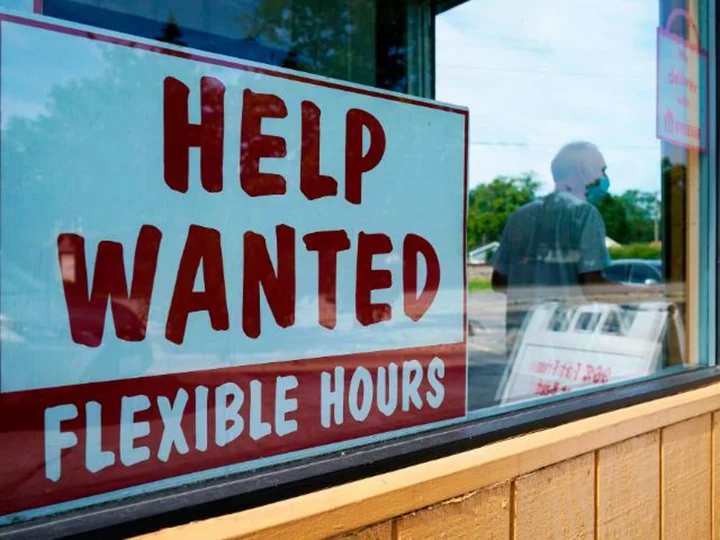US small businesses are noticing slightly better business conditions and are feeling less pessimistic about the economy's future, but they're still gloomy when it comes to hiring, according to a survey released Tuesday by the National Federation of Independent Business.
As inflation continued to slow last month, optimism improved among the more than 1,300 small businesses surveyed, though it remains subdued compared to pre-pandemic times. The share of owners expecting better business conditions in the next six months rose 10 points from June to a net negative of 30%, "the highest reading since August 2021 but historically very negative," according to a release.
There weren't many improvements in July when it came to hiring, with 42% of owners saying they had job openings that were hard to fill, unchanged from June. Of owners hiring or trying to hire, 92% reported few or no qualified applicants for their available jobs, also unchanged from the prior month.
"With small business owners' views about future sales growth and business conditions dismal, owners want to hire and make money now from solid consumer spending," said Bill Dunkelberg, the NFIB's chief economist, in a release. "Inflation has eased slightly on Main Street, but difficulty hiring remains a top business concern."
The US job market has cooled gradually this year, which the Federal Reserve wants to see as it continues to fight inflation. Employers added 187,000 jobs in July, the second-weakest monthly gain this year, while job openings fell in June to their lowest level in more than two years. Openings still dwarf the level of unemployed people seeking work, pointing to a persistent imbalance in the labor market.
At the same time, the broader economy has remained on a strong footing. Gross domestic product, the broadest measure of economic output, grew at an annualized rate of 2.4% in the second quarter, faster than the 2% rate in the first three months of the year. Consumer spending picked up in June by 0.5%, following a more moderate pace of growth in the prior four months.
Despite the economy holding steady, optimism among small businesses isn't back to where it was before the pandemic. The NFIB's latest survey showed that the share of business owners who expect real sales to be higher improved two points in July from the prior month to a net negative 12%, which was still "a very pessimistic perspective."
Still, surveys have shown that the economy's resilience coupled with inflation's steady cooldown in recent months has lifted the spirits of American consumers and businesses this summer, as the broader economy held steady under the weight of the Fed's aggressive rate-hiking campaign. Even though businesses are still grappling with difficulties in hiring, cooling inflation has taken some of the edge off.
It's unclear if that optimism will persist beyond the summer. Gas prices — highly visible indicators of inflation for consumers — have risen in recent weeks, which could prompt a slight uptick in overall inflation. The Federal Reserve Bank of Cleveland estimates that inflation picked up in July and August. The Labor Department releases July inflation data Thursday.
Student loan payments restart later this year and Americans will eventually have to contend with debt they've racked up this year. Wall Street bankers and investors are optimistic the economy can skirt a recession, but economic headwinds lie ahead.

